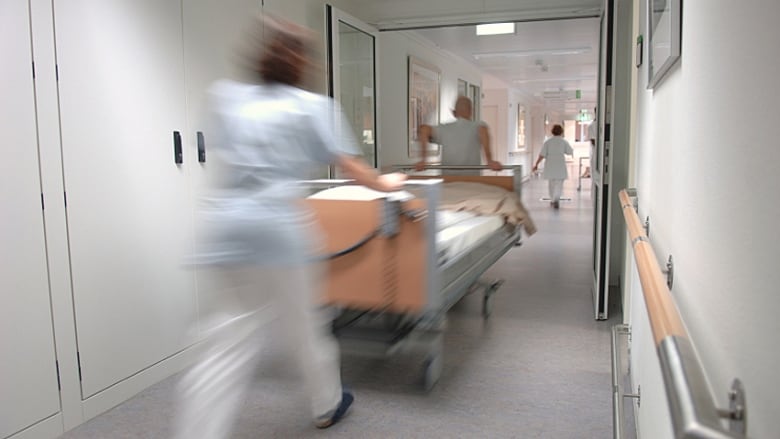COVID hospitalizations and ICU admissions in Sask. have nearly tripled in last month: SHA
Health authority says unvaccinated people remain the primary driver of hospital pressures

The Saskatchewan Health Authority (SHA) says overall hospitalizations and admissions to ICUs due to COVID-19 have nearly tripled over the last month.
In a news release issued on Wednesday, SHA said it continues to move staff to critical care areas and other required COVID services to deal with the unprecedented hospitalization rates.
The SHA's emergency operations centre commander, Derek Miller, said some communities are going to see temporary ER closuresas a result.
Meanwhile, patient transfers across Saskatchewan are expected to increase in the coming days and the health authority said these transfers may not be to hospitals closest to a patient's home or their preferred location.
Adults will continue to be admitted into pediatric intensive care units, it said.
SHA said it is adapting staff-to-patient ratios and allowing for double occupancy in some ICU areas as it deals with an increasingly stretched workforce.
Preparationsto treat larger number of seriously ill
The goal remains to be able to surge up to care for 125 ICU beds for COVID patients while maintaining care up to 50 for non-COVID ICU patients, the health authority said.
It said it also continues to prepare to care for up to 350 COVID non-ICU patients through Saskatchewan hospitals in response to this fourth wave.
Based on the current trajectory of COVID cases, the SHA said it is anticipated to require between 400 and 500 highly-skilled full-time equivalents (FTEs) to meet staffing needs for the acute and ICU surge.
The health authority is also aiming to deploy 340 FTEs to support contact tracing and 150 FTEs to testing.
"The challenge remains that the pool of those able and skilled in the right areas is finite," Miller said in the release. "Individuals need to be oriented, and in some cases require refresher training."
This latest wave is also affecting Saskatchewan residents' wait time for procedures because of the recently-confirmed slowdown of non-critical and elective services, and the redeployment of surgical teams.
The health authority said there has been a 32 per cent increase in overall wait times for surgical procedures across the province from March of last year to this week.
The group of residents waiting more than 18 months for their procedures has grown from 1,283 people last September to 3,697 this month, it said.
Impact of the unvaccinated on hospitals
The SHA said unvaccinated people remain the primary driver of hospital pressures with unvaccinated people five times more likely to be hospitalized for COVID-19 than fully vaccinated people.
Unvaccinated adults with COVID-19 that are admitted to ICUs are remaining in care an average two-and-a-half times longer than vaccinated COVID patients, it said.
The health authority said those who are vaccinated in the ICU are typically older individuals with other pre-existing health complications.
It said unvaccinated patients in ICU appear to only have their vaccination status as the common denominator.
Dr. Johnmark Opondo, the SHA's medical health officer and offensive chief for public health, said they are seeing more children getting sick with COVID in households where adults and other caregivers remain unvaccinated.
Opondo said these children are getting COVID at home.
In the last few weeks, one in five cases in children in Saskatchewan reported were under the age of 12, Opondo said.
"I cannot stress how critical it is that if you are eligible to get vaccinated, you must do so to protect young children in your household," Opondo said.












_(720p).jpg)


 OFFICIAL HD MUSIC VIDEO.jpg)
.jpg)



























































































